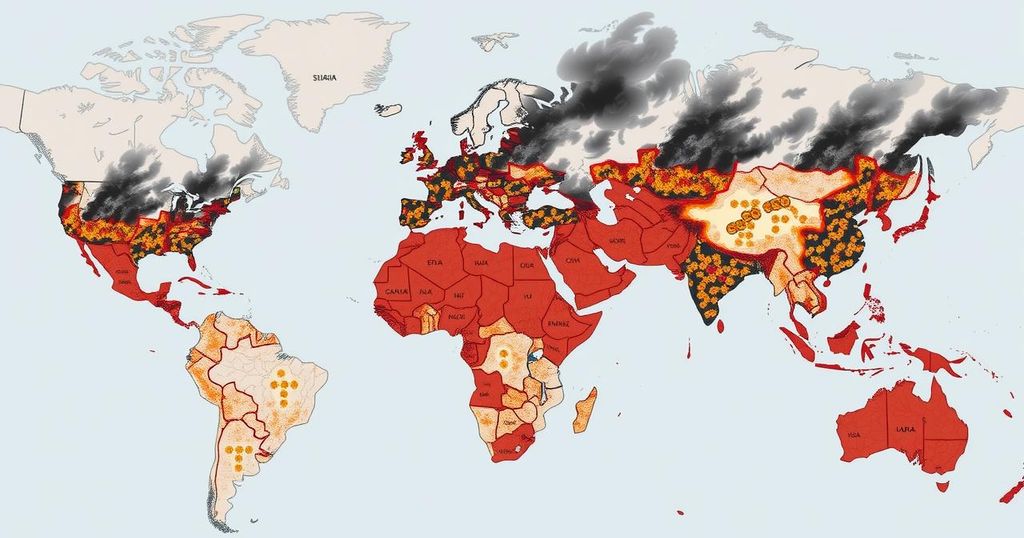Recent reports indicate severe humanitarian crises in South Sudan, Syria, and Gaza, marked by escalating violence, humanitarian aid challenges, and civilian suffering. In South Sudan, UNMISS highlights increasing abductions and violence against civilians. The WHO has begun crucial aid deliveries in Syria, while Gaza faces tragic child deaths due to cold exposure. The need for immediate and coordinated humanitarian responses is paramount.
Recent reports highlight the severe humanitarian crises affecting South Sudan, Syria, and Gaza. In South Sudan, escalating communal violence continues to affect civilians, with a UN peacekeeping mission noting a substantial rise in abductions and sexual violence. From July to September of the previous year, 299 civilians were reported killed, while 151 were abducted. In Syria, the WHO has initiated its first humanitarian air charter of the year, delivering over 32 tons of medical supplies to assist 300,000 people. Additionally, ongoing efforts to restore services and provide aid persist despite grave conditions. In Gaza, urgent humanitarian needs persist, with a tragic report of a one-month-old infant succumbing to hypothermia amid the ongoing blockade and lack of resources. Furthermore, the WHO emphasized the dire conditions at Kamal Adwan Hospital and called for the protection of healthcare facilities.
UN peacekeepers remain active in addressing conflicts in South Sudan, where communal clashes have become increasingly violent. The UN Mission in South Sudan (UNMISS) has recorded alarming statistics regarding civilian casualties, noting that the highest toll occurred in Warrap State, where 60 percent of the total deaths were documented. UNMISS head Nicholas Haysom reaffirmed the mission’s commitment to safeguarding civilians and encouraged local leaders to seek resolutions to persistent grievances.
In Syria, the WHO’s efforts to deliver medical aid demonstrate an essential international response to the ongoing humanitarian emergency. The UN has conducted numerous flights to ensure medical supplies reach those in dire need, and training for local medical personnel has commenced to enhance trauma care. The severity of the humanitarian situation is evidenced by civilian casualties due to unexploded ordnance, further complicating aid efforts.
The situation in Gaza remains critical, with devastating reports of preventable deaths among children due to cold exposure. Humanitarian agencies are working to provide necessary supplies; however, access remains restricted, particularly in North Gaza. The WHO’s plea for the release of detained health personnel highlights the ongoing dangers faced by healthcare providers in conflict zones.
The global response to humanitarian crises has been exacerbated by ongoing conflicts in South Sudan, Syria, and Gaza. Civil unrest and violence in South Sudan have led to severe civilian suffering, highlighted by significant casualties and violations of human rights. The situation in Syria continues to deteriorate, with humanitarian organizations delivering critical medical supplies amidst immense challenges. In Gaza, the blockade and conflict have contributed to a tragic humanitarian crisis, marked by preventable child deaths and restricted access to vital services.
In summary, the humanitarian crises in South Sudan, Syria, and Gaza present severe challenges that necessitate urgent attention and action. The UN’s efforts to monitor and provide aid demonstrate a critical international response, but the escalating violence, deterioration of healthcare services, and continued lack of basic necessities place countless lives at risk. It remains imperative for local and international entities to collaborate in addressing these multifaceted crises and to work towards sustainable solutions.
Original Source: news.un.org






